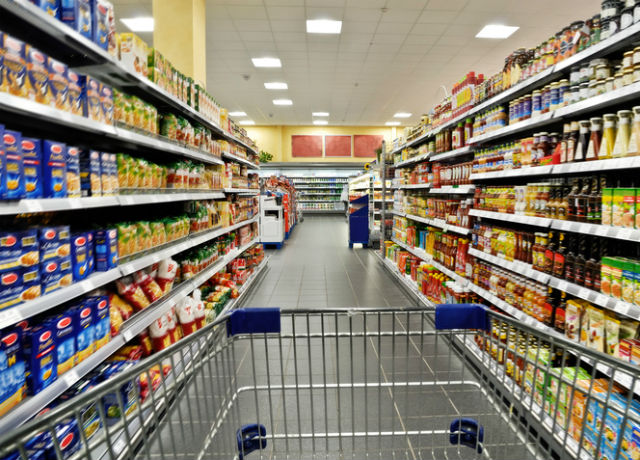Future food trade

The EFRA committee’s report on the impacts of Brexit on food trade was published yesterday.
The report raises concerns that British consumers could be subjected to higher food costs, with a significant impact on agriculture should the country begin trading under World Trading Organisation rules. It also suggests that removing tariffs could render the UK dependent on cheap imported food produced to lower welfare standards – potentially putting many UK farmers out of business.
There has been coverage of the report in the Guardian, Daily Mail, Mirror, BBC Online and Independent.
The Environment Secretary has always been clear that any future trade deals must work for farmers, businesses and consumers – while upholding our high welfare and environmental standards.
A Defra spokesperson said:
Leaving the EU gives us a golden opportunity to secure ambitious free trade deals while supporting our farmers and producers to grow and sell more great British food.
Any future deal must work for UK farmers, businesses and consumers, and we will not compromise on our high environmental or welfare standards.
Bovine TB strategy review

On Friday we published a review into the Bovine TB Strategy.
This is to be chaired by Sir Charles Godfray, a population biologist and Fellow of the Royal Society. Four years after the 25 year strategy was first published, Environment Secretary Michael Gove has said he believes now is a good time to review progress and consider what additional actions might be necessary now to ensure other tools and interventions are ready to be deployed in later phases of the strategy. The government has said it also envisages future reviews at five yearly intervals.
This was picked up by the Daily Mail, Telegraph and Mirror. Minister Eustice was also on BBC Radio Four’s Farming Today this morning explaining the review’s purpose.
Some of this coverage focussed on the consultation, launched at the same time as the review, to allow culling in the low-risk area of England. However, badger control in the low risk area will only be considered on the rare occasions where disease is present in badgers and is linked with infection in cattle herds. At this stage this is under consultation.
Domestic burning call for evidence

There are just a few days left for people to have their say on proposals to cut harmful emissions caused by the burning of dirtier fuels in the home.
A call for evidence on the use of house coal, smokeless coal, manufactured solid fuels and wet wood used for heating homes was launched at the end of last month to help the government reduce harmful emissions of soot and smoke, as action continues to improve air quality. This will close in little over a week, on February 27.
Environment Minister Thérèse Coffey said:
We all have a role to play in improving the air we breathe. Many of us enjoy a cosy fire in our homes, but burning dirtier fuel has a real impact on the quality of air for our family and friends around us.
We must be mindful that pollution is about more than just transport. Poor air quality affects public health, the economy, and the environment, which is why we are determined to do more. However, if we make the switch to burning cleaner domestic fuel, we can continue to enjoy burning wood and smokeless coal in stoves and fires in our homes.
The government is considering a range of options to tackle these emissions, these include:
- Encouraging consumers to switch from house coal by only allowing the sale of low sulphur smokeless alternatives
- Switching from wet wood to dry wood
- The introduction of sulphur limits for all smokeless solid fuels
- New powers for local authorities to take action for persistent smoke offences where local amenity is harmed
The government is not considering banning domestic burning, and is not seeking to prevent the use or installation of wood-burning stoves.
The call for evidence will inform our understanding of what impact these measures could have if introduced.